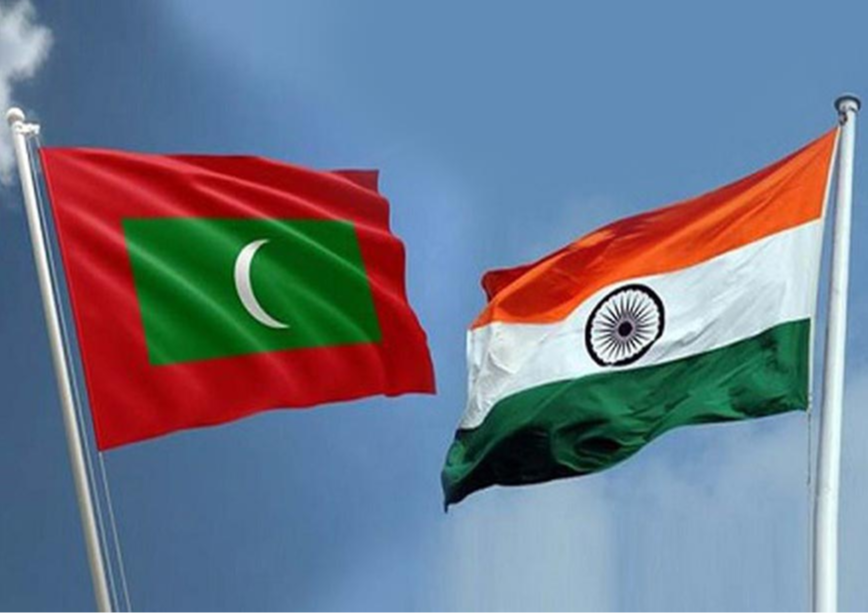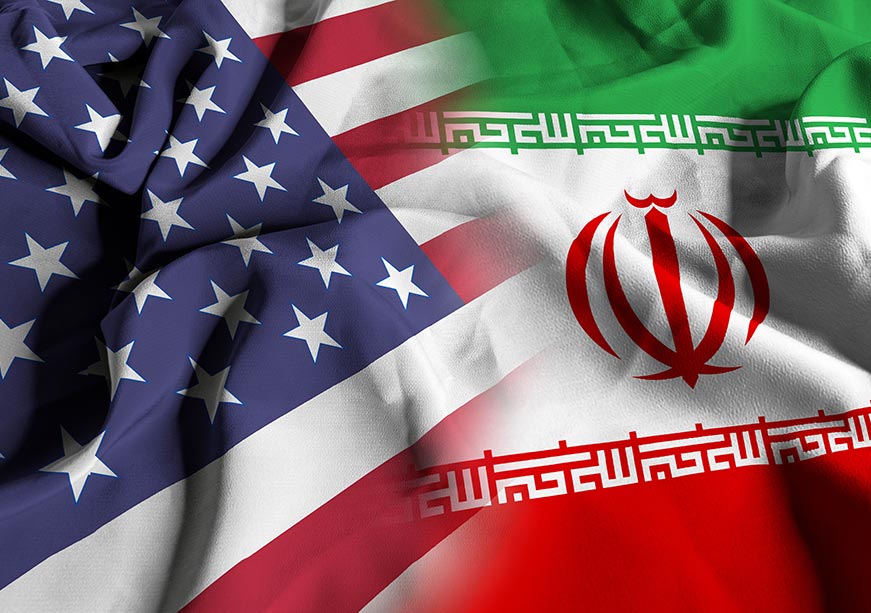
India-Maldives relations have been navigating choppy waters since the new government of President Muizzu took office. Controversial and derogatory remarks from Maldivian junior ministers about India and Prime Minister Narendra Modi, a backlash in the form of a ‘Boycott Maldives’ campaign trending on Indian social media, President Muizzu’s thinly veiled rebuke that Maldives ‘may be a small island nation, but that does not allow others to bully the country’ demonstrated how a once robust bilateral equation can quickly deteriorate into a very public diplomatic debacle.
The landscape of international relations and foreign policy is decidedly changing. Smaller nations are being presented with several new alternatives and opportunities for engagement that are no longer dominated by historical ties and geographical proximity. As a result, U-turns and tilts in foreign policy are going to become the norm rather than the exception in the future.
However, despite volatility in relations and alliances the world over, certain aspects of bilateral equations, particularly between long-term partners such as India and Maldives, will show continuity in policy. Campaign rhetoric that tends to be spirited, and at times, vitriolic will give way to a more toned-down approach as any new government enters office and begins to govern.
Smaller nations are being presented with several new alternatives and opportunities for engagement that are no longer dominated by historical ties and geographical proximity.
This is election politics. India has been the target of several election campaigns in its immediate neighbourhood that eventually lost steam. Once the elections are behind them, the business of governance assumes importance, and its neighbours recognise the role India plays in their political economy. Equally, they recognise the alternatives available to them and begin to weigh options and hedge their bets.
The new government of President Muizzu in Maldives is in the process of doing precisely this. As they explore potential alternatives to reduce the nation’s reliance on India, such as a deal to procure drones from Türkiye, health insurance to cover hospitals in the United Arab Emirates (UAE) and Thailand, Malé is also taking steps to slowly move relations with India back to a sense of normalcy. There are a few bright spots on the horizon that highlight the potential for closer engagement and cooperation between the two South Asian neighbours in the future.
Muizzu: India will continue to remain the Maldives’ closest ally
During his first interview with the media since assuming office in November last year, President Muizzu stated that India will continue to remain the Maldives’ closest ally and emphasised that there was no question about it. ‘The only matter of contention that arose was the presence of Indian military in the Maldives, the President said, adding India, too, had accepted the fact and agreed to withdraw the military personnel.’ In contrast to his earlier hard-line stance, Muizzu appears to have taken a conciliatory tone when he said, “Everything can be achieved through discussions and deliberations. That’s what I believe.”
Third Meeting of High-Level Core Group
Taking into account President Muizzu’s comments, the third meeting of the High-Level Core Group should be seen as a positive step towards improving relations between India and Maldives. The meeting was held in Malé on 17 March 2024. Although the governments of both countries viewed the earlier deputation and the current withdrawal of Indian military personnel through different lenses, this issue is no longer irreconcilable.
Taking into account President Muizzu’s comments, the third meeting of the High-Level Core Group should be seen as a positive step towards improving relations between India and Maldives.
The withdrawal of Indian personnel manning the aviation platforms was a key campaign promise of Muizzu’s. President Muizzu in an interview has stated that a solution has been reached. “The most important thing is to not have troops. The second best option is for Maldivians to operate them. A solution has been reached as a compromise between these two options,” the President explained.
Following the third meeting, the Maldivian Ministry of Foreign Affairs released a statement that “both sides noted the progress made in replacing Indian military personnel with civilians at the aviation platforms in the Maldives.” Importantly, it was reported that India and Maldives at the third meeting of the High-Level Core Group discussed a wide range of other issues including expediting the implementation of ongoing development projects, regular joint monitoring mechanisms, efforts to boost bilateral trade and investment, enhancing people-to-people linkages through capacity building and travel, highlighting the breadth of bilateral cooperation between the two countries.
Dosti exercises
The India-Maldives-Sri Lanka trilateral ‘Dosti 16’ Coast Guard Exercises that took place last month with Maldives hosting is a further sign that the new government is keen to put differences aside and to move bilateral relations forward. In addition to Dosti-16, Maldives also joined India’s biennial Milan Naval Exercises that took place in Visakhapatnam from 19-27 February 2024. Opting out of the Colombo Security Conclave annual meeting in Mauritius in end-2023, cancelling the Hydrography Agreement with India because “information about Maldivian seas should not be the property of any other country” and the decision was taken to protect the independence and sovereignty of the country” while making it a point to support Xi Jinping’s Global Security Initiative (GSI) as well as the Maldives-China defence agreement are signals that Maldives is moving away from India and titling towards China. However, Maldives hosting the Dosti Exercises demonstrates a continuing sense of regional cooperation and shared maritime security concerns. Dosti 16 was inaugurated by Maldivian Defence Minister Mohamed Ghassan Maumoon, and he emphasised “the importance of greater collaboration between the coast guards of Maldives, India, and Sri Lanka to address shared maritime security concerns”.
The Dosti Exercises launched way back in 1991 are a good reminder that India and Maldives have a long history of cooperating in areas such as search and rescue, medical evacuations, countering piracy, and other disaster relief efforts.
The Chinese vessel Xiang Yang Hong 03 moored close to Malé City coinciding with this period gave rise to much controversy in the region. The Maldivian Ministry of Foreign Affairs, however, released a statement in late January that permission had been granted to the vessel for the purposes of replenishment and rotation of personnel. It stated that the ship would not be conducting any surveys in the Maldives waters even though it docks in the country's port. It further stated that Maldives welcomes port calls with friendly nations and that it contributes to strengthening ties between Maldives and those nations. This is simply further evidence that India’s smaller neighbours will continue to display balancing acts between India and China and such tilts are to be expected in the future. Against this background, the Dosti exercises should be seen as restoring some much-needed balance to the India-China-Maldives equation. The Dosti Exercises launched way back in 1991 are a good reminder that India and Maldives have a long history of cooperating in areas such as search and rescue, medical evacuations, countering piracy, and other disaster relief efforts.
Thilamale Bridge project
The Thilamale Bridge project, signed by the previous administration and being built by Indian company Afcons Infrastructure Limited, is an ambitious 6.74-km long bridge and causeway link that will connect the capital city Malé with adjoining islands of Vilimale, Gulhifalhu, and Thilafushi. The project was initially expected to be completed in 2024 but faced severe delays, for several reasons, partly related to the COVID-19 pandemic, others to do with the ambitious nature of the project and finally due to concerns from the Opposition (at the time) that raised questions about the quality of construction and its environmental impact, especially on Vilimale reef. Despite fears of delays and/or suspension, Minister for Construction & Infrastructure Dr Abdulla Mutalib, speaking at a Press Conference last week said work on the Thilamale bridge project is presently proceeding ahead of schedule, and that 35 percent of the project has now been completed. “The most important thing at the moment is to proceed with the work in line with the schedule,” he noted. President Muizzu has also clarified in his recent media interview, that when he met Prime Minister Modi in Dubai, “I did not intend to halt any ongoing projects. Instead, I expressed my desire to strengthen and expedite them.”
Despite fears of delays and/or suspension, Minister for Construction & Infrastructure Dr Abdulla Mutalib, speaking at a Press Conference last week said work on the Thilamale bridge project is presently proceeding ahead of schedule, and that 35 percent of the project has now been completed.
The project, once completed, will not only enhance connectivity between the islands but will also redefine the economic landscape of the country, while also addressing several related challenges of overcrowding in the capital and youth unemployment. In keeping with Maldives’ larger challenge of climate, the project plans include the use of solar power for road lighting, navigation lighting, deck cell lighting, CCTV, lighting on sign gantry and so on.
Looming debt crisis
Although President Muizzu is signalling a return to normalcy in Maldives’ bilateral equation with India, as compared to his campaign rhetoric, his larger goal of reducing his country’s reliance on India still stands. Muizzu is proactively seeking alternatives, particularly in those areas where Maldives typically cooperated with India, such as procurement of essentials, tourism, trade, maritime security and health, as evidenced by the free trade agreement being currently worked out with Türkiye or discussion taking place on the possibility of extending direct flights from several Chinese cities to Maldives to increase tourism.
However, with warnings of a foreign debt crisis close at hand, it appears Muizzu has gauged that smoothening relations with India is advantageous to urgently needed debt relief measures when he made an appeal to India. While Maldives under President Muizzu works out its foreign policy priorities, oscillating between continuity and change, (as is par for the course) India should see the changed reconciliatory stance towards it as an opportunity to move away from existing negative perceptions in its immediate neighbourhood of being a domineering big power and demonstrate that India is a reliable development partner, by addressing the very urgent problems of youth unemployment, rising fuel prices, and debt distress.
Vinitha Revi is an Independent Scholar associated with the Observer Research Foundation
The views expressed above belong to the author(s). ORF research and analyses now available on Telegram! Click here to access our curated content — blogs, longforms and interviews.




 PREV
PREV


